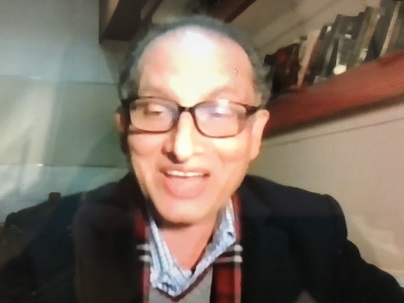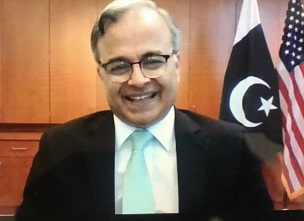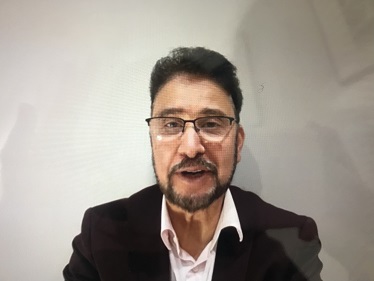“The World Needs to Respond to Kashmir Crisis,” Says Ambassador Asad Majeed Khan
By Elaine Pasquini

Washington: February 5 is observed every year as Kashmir Solidarity Day to show support for the right of Kashmiris to freedom and self-determination.
This year the Embassy of Pakistan in Washington, DC hosted a panel to draw attention to India’s increased repression, unlawful detentions, and extrajudicial murders in Kashmir.
“The world and the international community need to respond to the crisis in Kashmir in the same vigorous way as the international community responds to some of the other issues and crises that we are facing in different parts of the world,” said Ambassador Asad Majeed Khan, Pakistan’s ambassador to the United States. “No double standards should be applied.”
The dire situation warrants “immediate attention by the international community,” Khan added, because the conflict has been on the roster of the United Nations for the past 70 years. “It still needs to be resolved, not just to provide justice to the people of Jammu and Kashmir, but to prevent war and instability in the region.”
“We who are outside Indian-occupied Kashmir need to become the voice because their voices have been taken away in Kashmir,” the ambassador stated, pointing out that local and international journalists have been arrested by the Indian government’s ruling Bharatiya Janata Party.
Despite India’s insistence that this is an internal matter, “It is anything but that,” Khan asserted, “because Kashmir is a recognized disputed territory and a dispute that needs to be resolved.”
It is deeply concerning, however, that India seems not to be listening. “It’s really unfortunate that the repression and its intensity have gone up and India remains determined and almost desperate now with the kind of actions that they have been taking,” he said.
 Amb Aizaz Chaudhry
Amb Aizaz Chaudhry |

Amb Asad Majeed Khan |
%20Wes%20Martin.jpeg)
Col (ret) Wes Martin
|

Danielle Khan |

Dr Afzal Khan |
The revocation of Article 370 from India’s constitution on August 5, 2019 simultaneously nullified Kashmir’s own constitution.
In this regard, he continued, legal dimensions are currently being explored to stem the heavy hand of the Indian forces. “I hope that the jurists of the world and the legal minds will get together and play their part in that regard,” he said.
Dr Afzal Khan, British Parliament member and Labor Shadow Justice Minister, asserted that the excessive civilian casualties, detentions and impunity for human rights violations point to a much wider problem in India.
“The rise of populism has led to a lack of checks and balances and a crackdown on dissent,” he argued. “The suffocation of minority rights and the lack of freedom of expression has also been illustrated by the farmers’ protests and the prosecution of minorities, including Christians.”
The UK needs to step up and hold India to account for their ongoing abuses, the parliamentarian said. Currently, as the world’s attention is drawn to Russia as it amasses troops on its border with Ukraine, Chaudhry called on the international community to respond to the Kashmiri conflict with the same vigor. “It is not enough for the UK or international community to claim that this is an issue for India and Pakistan,” he said. “The whole of Asia is suffering because of the Kashmir conflict and there is a genuine risk of war as China, Pakistan and India are all nuclear powers.”
US-based human rights activist Danielle Khan spoke of the need to focus not just on India’s abuses in Kashmir, but about rising violence and discrimination against all Muslims and religious minorities across India. “The world may only listen when they realize the trend of genocide is also extending beyond Kashmir,” she said. “This will help shift the narrative that this is solely a Pakistan versus India issue because we know for Pakistan it is not. For Pakistan, it is about giving Kashmiris their basic human rights and dignity along with their UN-backed plebiscite.”
“We must make it clear to the international community that acts of violence by Hindu extremists have become so severe that we are witnessing a situation equivalent to that of the Nazi regime as they sought to dehumanize the Jews and exterminate them,” she added. “As human rights lawyer Arjun Sethi summed up in one tweet: ‘India has shown again that it is not the world’s largest democracy. It is the world’s largest authoritarian regime.’”
(Elaine Pasquini is a freelance journalist. Her reports appear in the Washington Report on Middle East Affairs and Nuze.Ink.)

